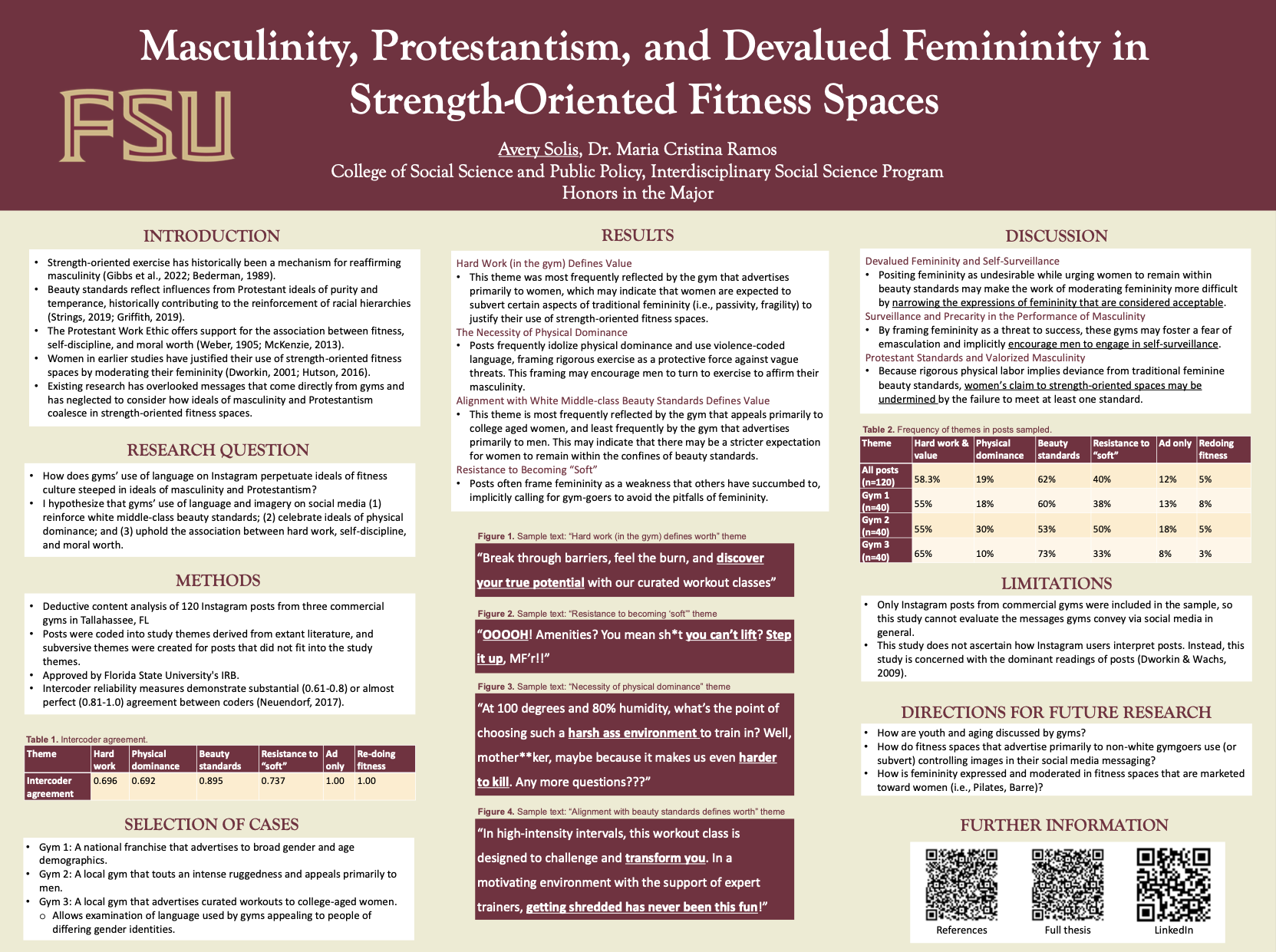Research Symposium
25th annual Undergraduate Research Symposium, April 1, 2025
Avery Solis Poster Session 1: 9:30 am - 10:30 am/ Poster #40

BIO
I am a senior in the College of Social Science and Public Policy, and I was born and raised in Tampa, Florida. I study Interdisciplinary Social Science with a primary concentration in Sociology and a secondary concentration in Inequalities and Society, and after graduation in May I plan to pursue a Ph.D. in Sociology at FSU. Broadly, I am interested in researching how fitness and self-optimization interact with modern constructions of gender and race. My current research, conducted for Honors in the Major, examines Instagram posts from Tallahassee gyms to explore if and how the language and imagery used in messaging from strength-oriented gyms align with ideals associated with Protestant values and traditional masculinity. My experience as an undergraduate researcher has helped me build confidence and community, affirmed my passion for sociological research, and elucidated the value of an interdisciplinary approach to research.
Masculinity, Protestantism, and Devalued Femininity in Strength-Oriented Fitness Spaces
Authors: Avery Solis, Dr. Maria Cristina RamosStudent Major: Interdisciplinary Social Science
Mentor: Dr. Maria Cristina Ramos
Mentor's Department: Interdisciplinary Social Science Program Mentor's College: College of Social Science and Public Policy Co-Presenters:
Abstract
Existing research has shown that strength-oriented fitness culture is a mechanism for reaffirming masculinity, upholding Protestant values of self-denial and hard work, and offering support for white middle-class beauty standards. Previous studies have neglected to examine messaging directly from gyms, focusing instead on gym-goers and fitness literature. Integrating the insights of sociology and religious studies, this study examines interactions between Protestant values and masculinity within fitness culture that prior research has overlooked. Using deductive content analysis of the Instagram posts of three commercial gyms in Tallahassee, Florida, this study examines whether the language and imagery in posts align with ideals linked to traditional masculinity and Protestant values. Results suggest that messages from strength-oriented gyms may compel individuals to simultaneously embody white middle-class beauty standards and the Protestant Work Ethic; for women, these two ideals tend to contradict one another, while they are complimentary for men. Posts from strength-oriented gyms also echo traditional ideals of masculinity by positing excess femininity as a weakness and an ever-present threat, potentially narrowing conceptions of acceptable expressions of masculinity and femininity and urging gymgoers to surveil and moderate their gender expression.
Keywords: Fitness culture, masculinity, femininity


